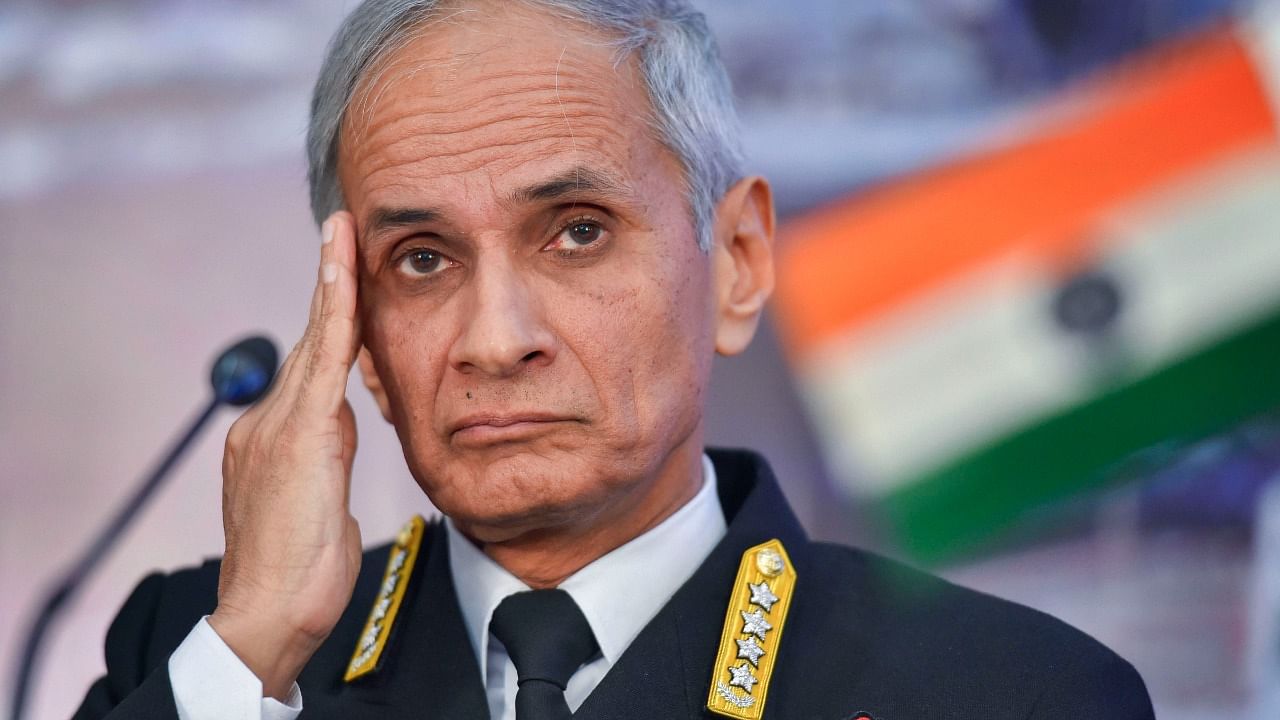
Without specifically naming China, Indian Navy chief Admiral Karambir Singh on Monday said that nations whose actions are inimical to the interests of the India-Pacific and Indian Oceanic regions need to be called out and corrected.
Singh, who was speaking at the inaugural session of the Goa Maritime Conclave, which got underway in Goa on Monday, also said that India, as well as Sri Lanka and Maldives need to collectively deal with drug trade fuelled by cash-strapped terror organisations ISIS and the Taliban.
"Once you understand the domain and you find that there is any action by any country which is inimical to the free open and inclusive Indo-Pacific and Indian Ocean region. Then we have to act and that country has to be called out and said this is not correct. That is the present situation as it exists," he said, when asked to comment about China's maritime expansionist moves in the ocean around the Indian subcontinent and beyond it.
"Now when we identify the common maritime goals, we will work together from these to distillate some action points and then we will take action... The ISIS and the Taliban, since a lot of funding has stopped, most of their income is through drug trade," Singh said.
"This drug trade moves from the Makran coast heads to the east coast of Africa then moves east through all the Island territories which are basically tourism oriented economies, comes to Sri Lanka, to India and of course goes out to the world. We are for example Maldives, Sri Lanka and us we are going to have focussed operations where we will deal with these as soon as the intelligence comes," he said, adding that the navies of Maldives, Sri Lanka and India would conduct prompt focused operations as soon as intelligence related to illegal drug transportation is received.
Foreign Secretary Harsh Vardhan Shringla, who was also present at the conclave said that the Indian Oceanic Region was beginning to get militarised on account of unsettled issues related to international (maritime) laws.
"Another set of challenges arises from geopolitical volatilities: a lack of commitment to settle the international law has led to an increased militarization of the region. Militarization always adds to complexities," Shringla said.
"The IOR it is quite obvious will face an increasingly complicated, rapidly evolving and more demanding security situation with an ever increasing battery of threats and uncertainty. This requires all of us and in particular the navies, the coast guard and the maritime security agencies of this region to do more together. India stands ready and willing to do its share and more in bettering this record," he further said.
Shringla also said that there was a need for co-operation between Navies of the IOR to take on non-traditional threats.
"Non-traditional threats and new technologies have combined to form a whole new spectrum of sub conventional security threats. New players have emerged," he said, which impact the security as well as the well-being of the countries in the oceanic region.
"The blue economy, while creating opportunities and prosperity, (also) generated vulnerabilities. Irresponsible fishing is damaging our food security. More commerce means more accidents, it means more pollution. The blue economy supports an increased number of coastal economic and population centres," he also said.
Check out latest DH videos here